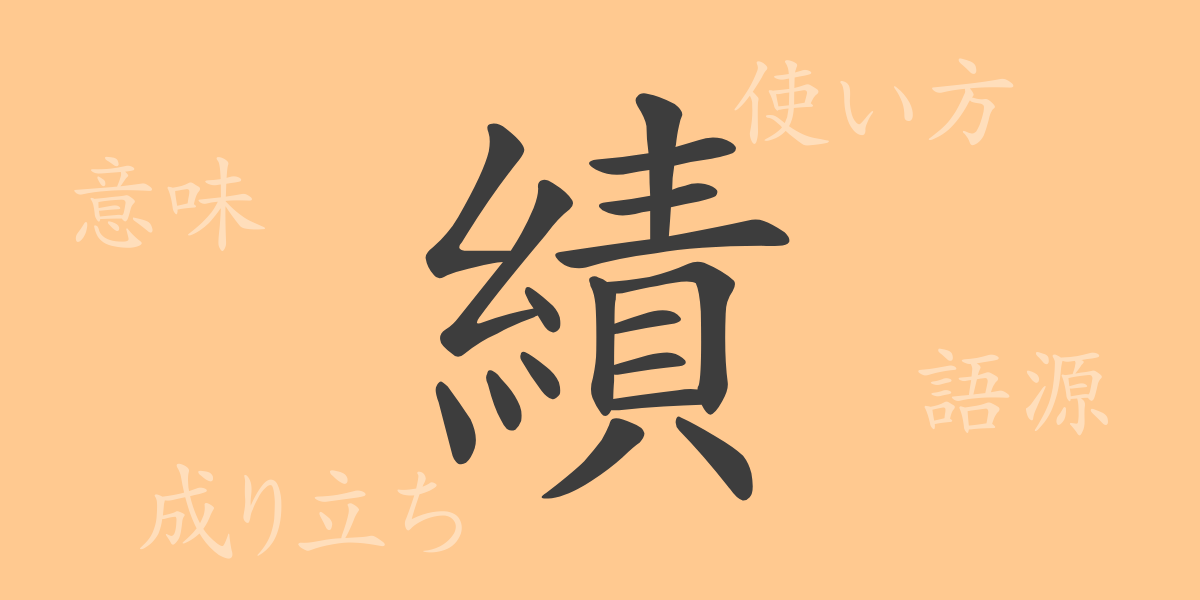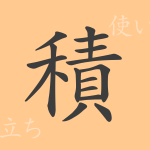The depth of Japanese character culture is profound, with kanji offering a particularly rich variety of meanings and forms. “績” (せき) is one such kanji, playing a significant role in our daily lives and history. In this article, we will explore the hidden history, meaning, and usage of “績”, embarking on a journey to rediscover the richness of the Japanese language through this single character.
Origins of 績 (せき)
The kanji “績” originated from ancient China, evolving from a pictograph that represented the act of spinning thread. Initially symbolizing the process of spinning, it came to represent the accumulation of results or achievements due to the meticulous and repetitive nature of spinning. Over time, this kanji has been embraced by the Japanese language, where it has developed its unique significance.
Meaning and Usage of 績
“績” denotes achievements or results, often used to describe the outcomes of individual or collective activities. It is also utilized in academic contexts, as in “成績” (academic grades), reflecting the performance or outcomes of efforts. Commonly, it appears in contexts like “成績優秀” (excellent grades) or “業績評価” (performance evaluation), where it assesses the fruits of one’s labors.
Readings, Stroke Count, and Radical of 績
The kanji “績” features specific readings and structural details:
- Readings: The on’yomi (Sino-Japanese reading) is “セキ”, and there is no commonly used kun’yomi (native Japanese reading).
- Stroke Count: “績” consists of 17 strokes.
- Radical: The radical of “績” is 糸部 (いとへん), related to thread or yarn.
Idioms, Phrases, and Proverbs Using 績
There are several idioms and phrases involving “績”, each reflecting its nuanced meanings:
- 学績 (がくせき) – Refers to academic grades, indicating the progress or understanding in one’s studies.
- 戦績 (せんせき) – Describes the record or performance in warfare or competitions.
- 善行積績 (ぜんこうせきせき) – Represents the accumulation of good deeds.
- 功績 (こうせき) – Stands for achievements, specifically those earned through one’s efforts.
- In resumes, “職務経歴と実績”(しょくむけいれきとじっせき) refers to job experience and achieved results.
Conclusion on 績
The kanji “績” may seem to simply derive from the act of spinning thread, but it carries a deep historical and cultural significance, assessing human effort and achievement across various fields like academics, work, and sports. Understanding the meanings behind such kanji not only enriches language learning but also deepens cultural appreciation. This exploration of “績” hopefully provides insights into the profound layers of Japanese language and its expressive capacity.

























